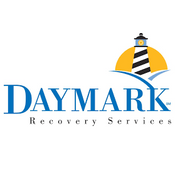3 Ways Exercise Can Help With Withdrawal Symptoms

While regular exercise can help you manage weight and improve endurance, it is also beneficial if you are recovering from a substance use disorder. Specifically, it can help strengthen the body and combat many of the physical and mental health side effects. Here’s a closer look at how working out can help curb symptoms when you combine it with counseling and recovery approaches.
How Does Regular Fitness Support Recovery?
1. Minimizes Cravings
Drinking alcohol and using substances produces a surge of dopamine in the brain. This hormone is associated with pleasure, and is one of the main reasons behind continued use. Cravings tend to strike when the dopamine recedes and the body wants more of it.
However, exercise can help combat this pattern by stimulating a natural spike in dopamine. This reduces the desire to gain pleasure through drugs or alcohol, as your body is receiving a healthy supply of the chemical.
2. Promotes Better Sleep
 Continued use of substances will impair sleep-wake cycles, and insomnia and sleep disturbances become common during recovery. Without enough sleep, you may have trouble regulating your mood or thinking clearly, increasing the risk of relapse.
Continued use of substances will impair sleep-wake cycles, and insomnia and sleep disturbances become common during recovery. Without enough sleep, you may have trouble regulating your mood or thinking clearly, increasing the risk of relapse.
Exercise causes an initial increase in body temperature, followed by a gradual drop after activity. This temperature shift promotes drowsiness, making it easier to fall asleep. Furthermore, brain chemicals that increase after exercise will help to prevent depression, anxiety, and other mental health issues that contribute to restlessness. Over time, having a restored sleep cycle will help the body establish a predictable routine.
3. Elevates Natural Energy
Although many people in recovery experience sleep disruptions, you may also experience intense fatigue. Often, this is due to the body requiring a considerable amount of energy to offset the effects of withdrawal.
In the early phase of recovery, extra sleep is necessary so that the body can recover. After that initial period, you should adopt regular fitness routines to increase oxygen and nutrient delivery. These components help muscle tissue produce more energy. They also allow the heart to work more efficiently, gradually boosting endurance levels.
If you want to address substance use and its effects, turn to Daymark Recovery Services in Davidson County. This clinic understands that substance use impacts everyone differently, and they provide personalized treatment solutions—including mental health counseling and medication management. To learn more about their residential and outpatient programs throughout North Carolina, visit this recovery center online. Call (336) 242-2450 to speak to a team member about admission.
About the Business
Have a question? Ask the experts!
Send your question

